Our Hobbies | Spanish: Beginner A1 Level - Class 6 PDF Download
Hobbies In Spanish: Essential Vocabulary
1) Sports (Deportes)
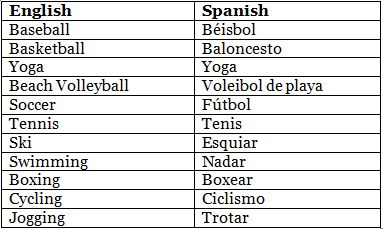
2) Outdoors activities (Actividades al aire libre)
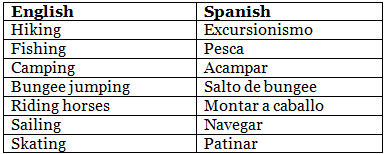
3) Art (Arte)

4) Music (Música)

5) Playing instruments (Tocar instrumentos)

6) Dance (Danza)
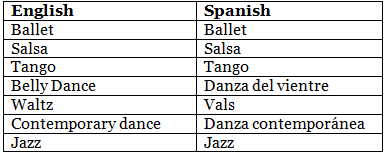
7) Going out (Salir)
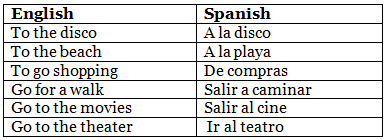
8) Relaxing hobbies
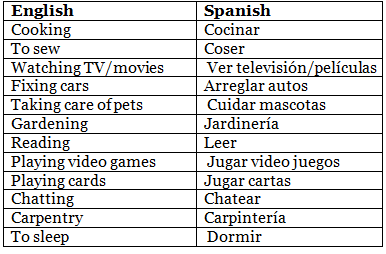
Hobbies in Spanish: Talking About Likes And Dislikes
To talk about hobbies in Spanish, there are a group of verbs that will help you express things that you: like, love, hate or don’t like.
For example:
- I like playing baseball – Me gusta jugar baseball
- I love sleeping on my days off – Yo amo dormir en mis días libres
- I hate camping – Yo odio acampar
- I don’t like playing video games – No me gusta jugar juegos de video.
For a more in-depth explanation on using these verbs, check out our post on how to say you like something in Spanish.
In the rest of this post, we will cover three ways to express your likes and dislikes as it relates to hobbies in Spanish.
1) Using Infinitive Verbs
When you talk about your hobbies in Spanish, you can use infinitive verbs with the below formula.
Mi pasatiempo favorito es + infinitive verb + complement
(My favorite hobby is + Infinitive verb + complement )
Here are some examples of this formula in action.
- My favorite hobby is going to the gym – Mi pasatiempo favorito es ir al gimnasio
- My favorites hobbies are playing the guitar and dancing – Mis pasatiempos favoritos son tocar la guitarra y bailar
- My favorite hobby is camping – Mi pasatiempo favorito es acampa
2) Using Indirect Objects + Verb Gustar
Probably the most common way to express a like or dislike.
- I like playing cards with my grandmother – Me gusta jugar cartas con mi abuela
- I like to swim early in the morning – Me gusta nadar temprano en la mañana
- He likes to play soccer – Le gusta jugar fútbol
Remember, when discussing likes and dislikes, the indirect objects pronouns can form part of the question AND also the answer.
You can use the below formula to ask someone a question about their likes and dislikes.
- ¿ + Indirect object + verb gustar + infinitive verb + complement + ?
Some examples:
- Do you like to play poker? – ¿Te gusta jugar poker?
- Do you like to swim in the pool? – ¿Te gusta nadar en la piscina?
- Do you guys like to watch romantic movies? – ¿Les gusta ver películas románticas?
- Does (he/she) likes to play any instrument? – ¿Le gusta tocar algún instrumento?
You can always add Spanish questions words such as ¿Qué? or ¿Cuál? to get more specific answers.
- What do you like to do? – ¿Qué te gusta hacer?
- What is your favorite hobby? – ¿Cuál es tu pasatiempo favorito?
- What do you do in your spare time? – ¿Qué haces en tu tiempo libre?
- What do you like to do on weekends? – ¿Qué te gusta hacer el fin de semana?
And finally, here are more examples where you can see how indirect pronouns form part of the question and answer.
- Do you like to practice boxing? No, I do not like boxing – ¿Te gusta practicar boxeo? No, no me gusta el boxeo
- Do you like cycling? Yes, I love to ride bike – ¿Te gusta hacer ciclismo? Si, yo amo andar en bicicleta
- What do you do in your spare time? I like to sew with my grandmother – ¿Qué haces en tu tiempo libre? Me gusta coser con mi abuela
- What do you guys like to do on weekends? We like to visit museums – ¿Qué les gusta hacer los fines de semana? Nos gusta visitar los museos
3) Using Personal Pronouns
A simple formula which can be used with verbs like Amar (to love) or Odiar (to hate).
- Personal pronoun + Conjugated verb + infinitive verb + complement
Some examples:
- I love playing with my nephews – Yo amo jugar con mis sobrinos
- You love dancing – Tu amas bailar
- He hates to watch horror movies – El odia ver películas de terror
- We love going out with our dogs – Nosotros amamos salir con nuestros perros
Hobbies In Spanish: Don’t Forget The Adverbs
Spanish adverbs help us modify or add more information to an action.
In this case, you can use adverbs with hobbies to be more specific in terms of expressing time, frequency and how much one enjoys that particular hobby.
- Every Sunday I go to the park to do Yoga – Todos los domingo hago yoga en el parque
- I love dancing, and I really enjoy my dancing classes – Yo amo la danza y realmente disfruto mis clases de danza
- Do you like playing tennis? Yes I like it a lot – ¿Te gusta jugar tenis? Si, me gusta mucho
- I really like reading. Books are never enough – Me gusta mucho leer. Nunca son suficientes libros
|
33 videos|38 docs|28 tests
|
FAQs on Our Hobbies - Spanish: Beginner A1 Level - Class 6
| 1. ¿Cuál es la importancia de aprender vocabulario relacionado con los hobbies en español? |  |
| 2. ¿Por qué es crucial hablar sobre likes y dislikes al discutir hobbies en español? |  |
| 3. ¿Por qué los adverbios son importantes al hablar sobre hobbies en español? |  |
| 4. ¿Cuáles son algunas preguntas frecuentes que pueden surgir al hablar sobre hobbies en español? |  |
| 5. ¿Cómo puede ayudar el aprender vocabulario relacionado con hobbies en español a enriquecer las conversaciones diarias? |  |















